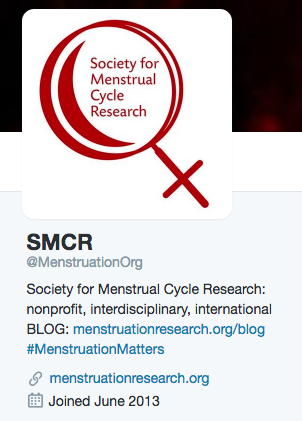Headlines about menstruation have certainly been on the rise in 2016, but is the taboo surrounding such a natural process really diminishing?
 Thanks to social media, more people are talking about menstruation, but there are still others who continue to perpetuate the stigma. This positive and negative discourse has situated menstrual talk in an interesting state of fluidity (pardon the pun). Within the same week, we see headlines that both celebrate and stigmatize menstruation.
Thanks to social media, more people are talking about menstruation, but there are still others who continue to perpetuate the stigma. This positive and negative discourse has situated menstrual talk in an interesting state of fluidity (pardon the pun). Within the same week, we see headlines that both celebrate and stigmatize menstruation.
For instance, in a gym in the Eastern European country of Georgia, hangs a sign asking swimmers to not go in the pool if they have their period. Sophie Tabatadze, who is a member at the gym, took to Facebook, calling the gym out on its misogyny in the hopes that they will take the sign down. The gym in response stated the sign is meant to ensure the hygiene of all swimmers, thus suggesting that menstruation is unhygienic.
On the other side of the discourse, we find Aaron, age 9, discussing the importance of educating young kids on what actually goes on during a girl’s cycle. The video supported by Binti International shows red fluid, rather than blue, and is one of many seeking to #smashshame and promote menstrual dignity for women and girls everywhere.
A hard-to-miss recent menstrual highlight came from Olympic swimmer, and bronze medal winner, Fu Yuanhui, who told a reporter she was in pain, not so much from the swim race, but because her period arrived the night before. Her comments went viral (33,000+ shares on this Guardian piece) raising conversations about female athletes and the stigma of menstruation. The world quickly learned about how menstruation is viewed in China, realizing the impact of Yuanhui’s bold statement for women living there. A 2014 hygiene study by SCA found that 76 percent of women in China are uncomfortable being in social situations with others while they are menstruating, and even today many still believe a woman shouldn’t swim while on her period.
And at the end of a woman’s reproductive journey, we find menopause, a topic which, like menstruation, has been gaining more attention in the press.
Post-reproductive lifespan, known to us humans as menopause, is raising some critical questions for biologists researching killer whales. A team from the Center for Whale Research is interested in understanding why life continues on after menopause for these whales? What purpose does prolonged life have for them? The team has identified a number of relevant factors of continuance of life, including the role of the matriarch, securing food sources and eliminating competition with younger orcas—factors which also hold true for humans.
Christa D’Souza, author of The Hot Topic, is excited about how this research is situating menopause in a new narrative of life experience and story-telling. She notes: “The idea of women passing on information; the idea of wisdom with age—there’s a beauty in that that is about something other than being able to reproduce.”
For women who are not able to reproduce due to early menopause, finding beauty in their past cycles is a challenge and one that may now have a promising solution. Doctors in Greece have found a way to reverse menopause and they are calling it ovarian rejuvenation. Through the technique of platelet-rich-plasma, or PRP, growth of tissue and blood vessels are triggered. After growth, doctors then inject the treated blood into the uterus. This then stimulates growth in follicles of the ovaries, re-starting a woman’s cycle. The procedure, while revolutionary, has been criticized for not being properly tested and raises some important ethical questions. While the researchers do not propose performing this procedure on women who are 60 or 70, the question of “at what age” fertility treatments should be refused remains.
Whether menstruation, menopause, or fertility, it is evident that the discourse around women’s health is expanding into new territory, met of course, by resistance and acceptance.

